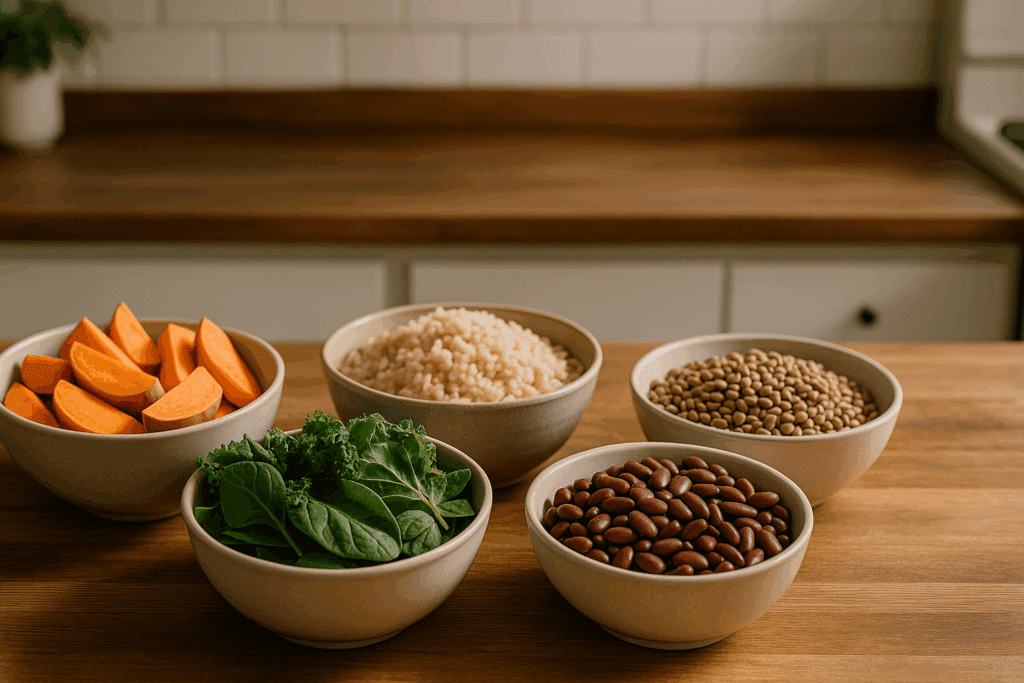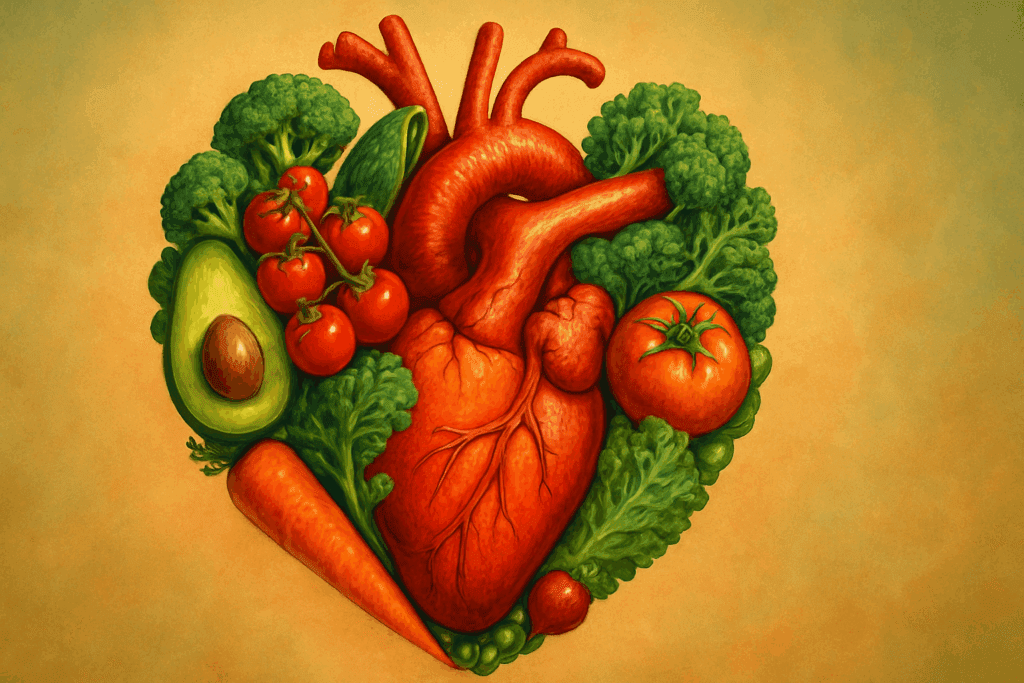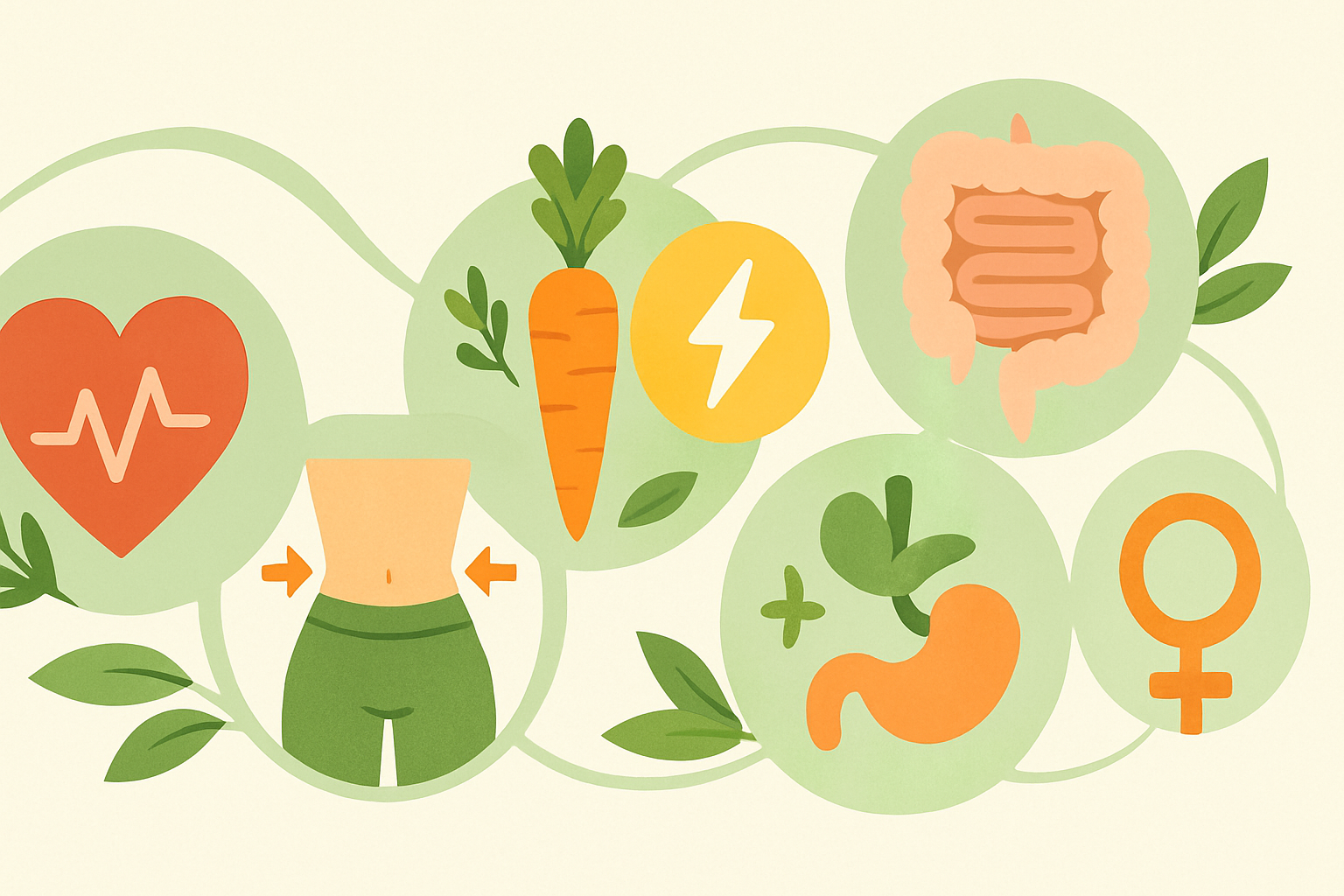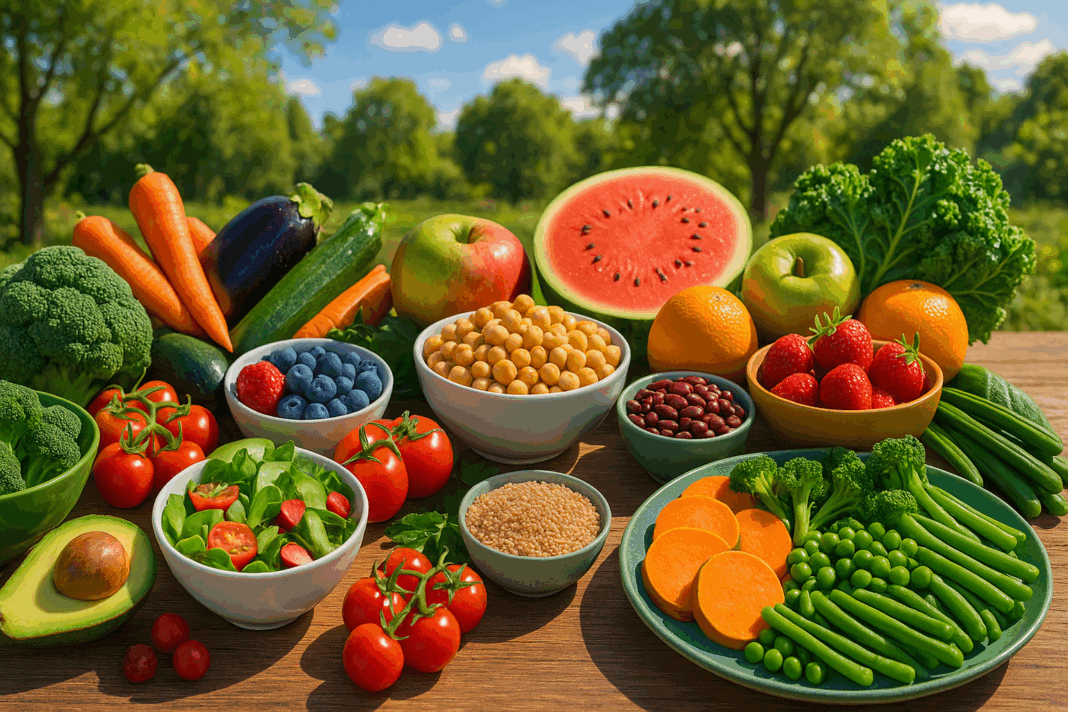Introduction: A Plant-Powered Revolution for Modern Health
As the medical community continues to shift toward lifestyle-based interventions, the conversation surrounding nutrition has taken center stage. Among the most compelling approaches gaining both public interest and clinical validation is the low fat vegan diet. Often categorized under the broader umbrella of whole-food plant-based nutrition, this dietary approach focuses on the consumption of minimally processed plant-derived foods while significantly reducing or eliminating fats, particularly from animal sources. For individuals seeking to improve cardiovascular outcomes and achieve sustainable weight loss, the low fat vegan diet offers a scientifically supported roadmap to optimal health.
You may also like: Healthy Plant-Based Dinners Made Easy: Best Whole Food Plant-Based Recipes for Beginners and Beyond
While dietary fads come and go, the low fat vegan movement is deeply rooted in decades of epidemiological research, clinical trials, and real-world success stories. From reversing heart disease to facilitating steady weight loss without calorie counting, the benefits are both diverse and profound. This article will explore the core principles of the low fat vegan lifestyle, examine the mechanisms through which it supports heart health and weight loss, and provide actionable guidance for incorporating low fat vegan meals and low fat vegan diet recipes into daily life.
Understanding the Foundations of a Low Fat Vegan Diet
At its core, the low fat vegan diet is characterized by the elimination of all animal products and the minimization of dietary fat, especially saturated fats and oils. Unlike traditional vegan diets that may still rely on high-fat plant foods such as nuts, seeds, and oils, the low fat vegan approach emphasizes starch-based foods, fruits, vegetables, legumes, and whole grains. This distinction is crucial, as it allows for a dietary pattern that is not only plant-exclusive but also low in caloric density and high in fiber, making it particularly effective for weight management and cardiovascular health.
The science underpinning this diet is both robust and growing. Research from pioneers like Dr. Dean Ornish and Dr. Caldwell Esselstyn has demonstrated the ability of a low fat vegan diet to halt and even reverse coronary artery disease, a feat previously thought impossible without surgical intervention. These findings are not anecdotal; they are supported by angiographic imaging, biometric data, and long-term clinical outcomes. Furthermore, the diet’s emphasis on unprocessed carbohydrates and fiber-rich foods helps maintain insulin sensitivity, reduce systemic inflammation, and lower LDL cholesterol levels—all key markers of cardiovascular health.
It’s important to differentiate between plant-based diets that include processed foods and those rooted in whole, natural ingredients. The latter is what defines a true low fat vegan meal plan. Processed vegan foods may be devoid of animal ingredients, but they often contain added fats, sugars, and refined carbohydrates that can undermine health goals. A low fat plant based approach avoids these pitfalls by prioritizing nutrient density over caloric density, creating a naturally satiating and metabolically favorable eating pattern.

Cardiovascular Benefits: Reversing Heart Disease with Food
The relationship between diet and heart health has been extensively studied, with compelling evidence pointing to the superiority of plant-based eating patterns. However, low fat vegan diets go a step further by not just preventing but actively reversing cardiovascular disease. In a landmark study published in The Lancet, Dr. Ornish’s program—which combined a low fat vegan diet with stress management and exercise—demonstrated regression of atherosclerotic plaque in patients with severe coronary artery disease. After just one year, 82% of participants experienced measurable improvement in arterial blood flow, without the need for statins or surgery.
Mechanistically, this effect can be attributed to several interrelated factors. First, the exclusion of saturated fats and cholesterol from animal products significantly reduces the body’s burden of low-density lipoprotein (LDL), often dubbed “bad cholesterol.” Second, the abundant fiber in low fat vegan meals helps to bind cholesterol in the digestive tract, preventing its absorption and facilitating its excretion. Third, the anti-inflammatory nature of plant-based compounds—such as polyphenols, flavonoids, and carotenoids—contributes to improved endothelial function, which is critical for maintaining flexible and responsive blood vessels.
Importantly, a low fat vegan diet also improves blood pressure regulation. The high potassium content found in fruits and vegetables, combined with the absence of sodium-laden processed foods, creates a dietary environment that supports vascular health. Studies have consistently shown reductions in systolic and diastolic blood pressure following the adoption of a low fat vegan lifestyle, further highlighting its therapeutic potential. Unlike pharmacological interventions, which often come with side effects, dietary modifications offer a sustainable and holistic approach to managing cardiovascular risk.

The Role of a Low Fat Vegan Diet in Sustainable Weight Loss
Weight loss is a complex and multifaceted goal, often plagued by short-term results and long-term frustration. However, the low fat vegan diet offers a unique advantage by promoting weight loss through natural appetite regulation, increased satiety, and reduced caloric density—without requiring restrictive calorie counting. The abundance of fiber in legumes, whole grains, and vegetables creates a sense of fullness that curbs overeating, while the low energy density of these foods allows for generous portion sizes that are both satisfying and slimming.
Multiple studies have validated the efficacy of this approach. In a 16-week randomized clinical trial published in the journal Nutrients, participants on a low fat plant based diet lost significantly more weight than those on a control diet, even though they were allowed to eat until fullness. The researchers attributed this to the thermogenic effect of high-fiber, carbohydrate-rich foods and the absence of calorie-dense fats. Moreover, plant-based diets are associated with improved gut microbiota diversity, which plays a crucial role in metabolism, insulin sensitivity, and fat storage.
The psychological benefits of low fat vegan weight loss strategies are equally compelling. By removing the stress of counting calories or restricting food groups arbitrarily, this approach allows individuals to develop a healthier relationship with food. Over time, this can lead to more intuitive eating behaviors, reduced disordered eating patterns, and greater long-term adherence. The emphasis on whole foods also naturally reduces cravings for processed snacks and sugar-laden treats, which are major contributors to weight gain in the modern diet.

Implementing Low Fat Vegan Meals in Everyday Life
Transitioning to a low fat vegan lifestyle may seem daunting at first, especially for those accustomed to meat-centric or high-fat plant-based diets. However, with a bit of planning and creativity, it is entirely feasible to create delicious and satisfying meals that align with this health-promoting philosophy. Staples such as brown rice, sweet potatoes, lentils, black beans, and quinoa serve as the backbone of many low fat vegan recipes. These ingredients can be combined with vibrant vegetables and spices to create nutrient-dense dishes that are both flavorful and filling.
One of the most accessible low fat vegan meals is a hearty vegetable chili, made with beans, tomatoes, and a medley of peppers, onions, and corn. This dish provides a balanced blend of protein, fiber, and complex carbohydrates while keeping fat content to a minimum. Another staple is the classic Buddha bowl, featuring a base of grains and legumes topped with steamed greens, roasted root vegetables, and a fat-free tahini dressing made with lemon juice and water. For breakfast, oatmeal with fresh fruit and cinnamon offers a warming, fiber-rich start to the day that supports metabolic health.
The key to long-term success lies in preparation and variety. Batch-cooking grains and legumes at the beginning of the week can save time and reduce reliance on convenience foods. Rotating between different types of beans, grains, and vegetables helps to ensure a broad nutrient intake and keeps meals interesting. Exploring global cuisines—such as Indian dals, Latin American rice-and-bean dishes, and Asian stir-fries—can provide inspiration while adhering to low fat plant based principles.
Science-Backed Mechanisms Behind the Diet’s Effectiveness
The scientific rationale for the effectiveness of a low fat vegan diet is rooted in both macronutrient composition and bioactive compounds found in plants. Unlike high-fat diets, which are energy-dense and often lead to passive overconsumption, low fat vegan diets are rich in bulk and low in calories, enabling natural appetite control. Additionally, the reduction of dietary fat leads to lower postprandial lipemia—a condition marked by elevated blood lipids after meals—which is associated with endothelial dysfunction and cardiovascular events.
Plant-based diets are also uniquely rich in phytochemicals—naturally occurring compounds that possess antioxidant, anti-inflammatory, and even anti-carcinogenic properties. These substances, found in abundance in fruits, vegetables, and legumes, play a critical role in modulating oxidative stress and supporting immune function. For instance, flavonoids in berries, catechins in green tea, and lignans in flaxseeds have all been shown to support cardiovascular health and metabolic efficiency.
Furthermore, low fat vegan diet recipes often emphasize whole-food combinations that support synergistic nutrient absorption. The inclusion of vitamin C-rich vegetables with iron-containing legumes, for example, enhances non-heme iron absorption, reducing the risk of anemia often associated with poorly planned vegan diets. Likewise, the fermentation of fiber by gut bacteria produces short-chain fatty acids, which contribute to insulin sensitivity and anti-inflammatory effects. These intricate interactions underscore the sophisticated biological impact of low fat vegan eating patterns.

Bridging the Gap Between Science and Everyday Practice
Despite the overwhelming evidence in support of low fat vegan diets, public perception and practical barriers still hinder widespread adoption. Common misconceptions—such as the belief that low fat vegan meals are bland, nutritionally inadequate, or socially restrictive—often deter individuals from exploring this approach. However, education and exposure can help bridge this gap. Cooking classes, online recipe communities, and physician-led health programs can empower individuals with the knowledge and confidence needed to make the transition.
Another critical factor in successful implementation is the support of healthcare providers. Physicians and dietitians trained in whole-food, low fat plant based nutrition can guide patients through the initial adjustment period and tailor recommendations to individual needs. This collaborative, patient-centered approach ensures that dietary changes are both effective and sustainable. Moreover, integrating low fat vegan diet recipes into family meals and social gatherings can help normalize the lifestyle, making it feel less like a temporary intervention and more like a permanent, enjoyable way of eating.

Frequently Asked Questions: Low Fat Vegan Diet and Health
1. Can a low fat vegan diet support athletic performance and muscle recovery?
Yes, a low fat vegan diet can absolutely support athletic performance when planned with nutrient density and timing in mind. Contrary to outdated misconceptions, plant-based athletes have shown remarkable endurance, recovery rates, and energy efficiency. Complex carbohydrates from low fat vegan meals like quinoa, brown rice, and legumes provide a steady supply of glycogen, the body’s preferred fuel during intense physical activity. In addition, recovery is supported by the anti-inflammatory properties of a low fat plant based diet, which helps reduce post-exercise muscle soreness and inflammation. Athletes following this diet often benefit from faster healing, improved oxygen flow, and enhanced cardiovascular endurance, which together can lead to improved long-term performance.
2. How can I avoid nutrient deficiencies on a low fat vegan diet without using supplements?
While supplementation is recommended for nutrients like vitamin B12, most nutrient needs can be met with strategic food choices within the low fat vegan framework. For instance, calcium can be obtained from collard greens, bok choy, and fortified plant milks, while iron from lentils and chickpeas is absorbed more efficiently when paired with vitamin C-rich foods like bell peppers or oranges. Zinc is plentiful in pumpkin seeds, beans, and whole grains—all staples in low fat vegan diet recipes. Omega-3 fatty acids, often overlooked, can be sourced from ground flaxseeds and chia seeds. By rotating ingredients and maintaining variety in your low fat vegan meals, it’s entirely possible to thrive without nutrient gaps.
3. What are some challenges people face when starting a low fat vegan diet, and how can they be addressed?
The most common challenges include withdrawal from high-fat and processed foods, social situations, and the learning curve of meal planning. Many new adopters find the simplicity of low fat vegan recipes to be both a blessing and a challenge, particularly if they’re used to richer flavors. Gradually transitioning, using spices creatively, and exploring international low fat vegan diet recipes—such as Indian dals or Ethiopian stews—can help bridge this gap. Social support, whether through online communities or local plant-based groups, often makes a major difference. Education is also crucial; understanding the long-term health advantages of low fat plant based living can reinforce commitment during the initial phase.
4. Are low fat vegan meals suitable for children and adolescents?
Yes, when thoughtfully planned, low fat vegan meals can provide all the essential nutrients for growing children and teens. Children have higher caloric needs for their body size, so it’s important to ensure energy-dense whole foods like legumes, whole grains, and avocados (in moderation) are included. Smoothies made with leafy greens, fortified plant milk, and bananas can be both kid-friendly and nutrient-rich. Incorporating a variety of textures and colors makes low fat vegan meals more appealing to younger palates. Pediatric dietitians increasingly recognize the benefits of low fat vegan diets for maintaining a healthy weight and reducing early risk factors for chronic diseases.
5. How does a low fat vegan diet affect hormone balance, especially for women?
A low fat plant based diet may positively influence hormone regulation, particularly in women experiencing menstrual irregularities or polycystic ovary syndrome (PCOS). High-fiber, low fat vegan meals help the body eliminate excess estrogen, potentially reducing symptoms such as bloating and mood swings. Additionally, reducing saturated fat intake—common in animal products—lowers inflammation and supports healthy insulin sensitivity, a key factor in hormonal health. Studies suggest that women consuming plant-based diets may experience fewer menopausal symptoms and reduced risk of hormone-related cancers. Still, balance is key; overly restrictive fat intake can sometimes hinder menstrual cycles, so including small amounts of whole-food fats like flax or chia seeds is recommended.
6. What are some lesser-known benefits of a low fat vegan diet for mental health?
Emerging research suggests that low fat vegan diets may support mental health through several mechanisms. The diet’s anti-inflammatory profile is associated with lower rates of depression and anxiety, as chronic inflammation has been linked to mood disorders. The high fiber content in low fat vegan meals supports a healthy gut microbiome, which in turn produces neurotransmitters like serotonin and dopamine. Moreover, the steady blood sugar regulation from whole grains and legumes can reduce mood swings and improve focus. Anecdotal reports and clinical observations also indicate improved emotional resilience and reduced mental fatigue among individuals who consistently follow a low fat plant based regimen.
7. How can I manage social events and dining out while following a low fat vegan diet?
Navigating social situations on a low fat vegan diet can be surprisingly manageable with a few proactive strategies. Research menus in advance and call ahead to inquire about customizable dishes—most restaurants are willing to accommodate requests for oil-free, plant-based modifications. Offering to bring a low fat vegan dish to gatherings not only ensures there’s something suitable for you but also introduces others to delicious low fat vegan recipes. Many cuisines, such as Thai, Ethiopian, and Japanese, offer naturally low fat plant based options that can be ordered with minimal adjustments. Finally, communicating your dietary choices in a positive, non-judgmental way can foster understanding and even inspire curiosity.
8. Is it possible to follow a low fat vegan diet on a tight budget?
Absolutely. In fact, a low fat vegan diet can be one of the most economical ways to eat. Staples like rice, beans, oats, potatoes, and seasonal produce are not only inexpensive but form the cornerstone of many low fat vegan diet recipes. Cooking in bulk and avoiding processed vegan alternatives—which are often expensive and high in fat—can dramatically lower grocery bills. Meal prepping and shopping at local markets or discount stores for legumes and grains in bulk further increase cost efficiency. With a little planning, it’s possible to enjoy diverse, nutrient-rich low fat vegan meals on even the most modest budget.
9. What are some innovative cooking techniques to enhance the flavor of low fat vegan meals without using oil?
Enhancing flavor in low fat vegan meals without oil requires creativity, but the results can be even more satisfying. Dry sautéing with water or vegetable broth, roasting with lemon juice or balsamic vinegar, and using spice blends can elevate flavor without added fats. Deglazing pans with tamari or wine adds umami depth, while caramelizing onions slowly in broth produces a rich, savory base. Blending steamed vegetables with herbs to create fat-free sauces is another technique gaining popularity in the low fat plant based community. Mastering these methods can transform simple low fat vegan recipes into restaurant-quality meals without compromising nutritional goals.
10. What trends or innovations are shaping the future of low fat vegan diets?
The future of the low fat vegan diet is increasingly shaped by both technological innovation and cultural evolution. Advances in whole-food meal delivery services are making it easier than ever to access convenient, nutrient-rich, low fat vegan meals. Nutritional tracking apps now cater specifically to low fat plant based users, helping individuals monitor intake and optimize for health outcomes. There’s also growing interest in regenerative agriculture to support the environmental sustainability of plant-based eating. Furthermore, culinary education platforms are teaching chefs to create gourmet low fat vegan diet recipes that prioritize both flavor and health. These trends are expanding the accessibility and appeal of the low fat vegan lifestyle far beyond its early adopters.

Conclusion: Embracing a Low Fat Vegan Lifestyle for Lifelong Health
The growing body of scientific evidence supporting a low fat vegan diet is not only compelling—it’s transformative. For those seeking to improve cardiovascular health and achieve lasting weight loss, this dietary approach offers a potent, holistic solution grounded in nature, nurtured by science, and validated by clinical outcomes. Through the elimination of harmful fats, the embrace of fiber-rich whole foods, and the enhancement of metabolic and vascular function, the low fat vegan lifestyle paves the way for sustainable wellness.
Far from being a restrictive or fringe approach, low fat vegan eating can be a delicious, practical, and deeply nourishing way of life. With countless low fat vegan recipes available online and an expanding community of practitioners and supporters, the resources for success are more accessible than ever. As more people adopt this lifestyle, the ripple effects can be profound—not just for individual health, but for the broader public health landscape and the planet itself.
Ultimately, embracing a low fat plant based diet is not merely a dietary choice—it is a commitment to a more vibrant, resilient, and compassionate way of living. For those ready to take control of their health through evidence-based nutrition, the low fat vegan path offers a journey rich with flavor, vitality, and the promise of a healthier future.
Further Reading:
Low-fat vegan diet better than Mediterranean diet for weight loss, metabolic health

